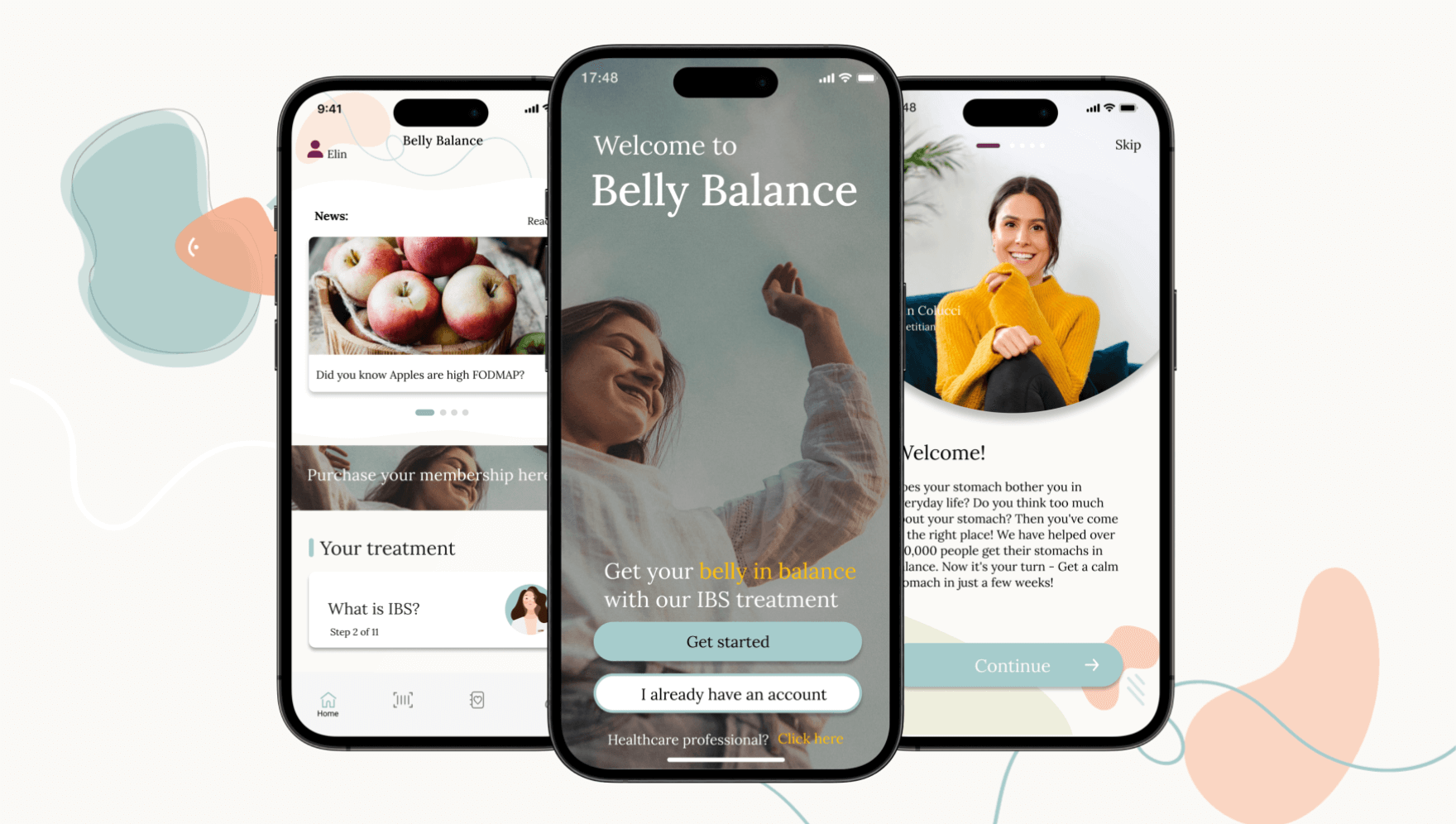
Probiotics
Probiotics refer to beneficial bacteria and are part of the approximately 1.5 kg of bacteria we have in our intestines. Increasing attention is being given to the role of gut bacteria in the development of IBS, and there is ongoing research into probiotic supplements and their potential to reduce symptoms. We’re still a way off from knowing exactly which supplement is best for whom, but we’re learning more all the time, and there are some basic guidelines to follow.
What is probiotics?
Probiotics are sometimes called “good” bacteria because they are believed to support the immune system and improve our health by keeping the number of “bad” bacteria in our digestive system under control. The colon is filled with thousands of bacterial strains – part of our gut flora. Optimal health requires a good balance between all these different strains. When harmful bacteria dominate – a condition known as dysbiosis – it can lead to a number of diseases. Eating probiotics can help maintain a good balance between bacterial strains, which can positively impact our health and reduce symptoms like gas and bloating. The bacteria in the gut need food to survive, so it is important to eat a diet rich in prebiotics, such as fiber.
What is the difference of probiotics and prebiotics?
Prebiotics refer to various types of dietary fiber that have the ability to stimulate the growth of health-promoting bacteria in the gut (probiotics). Prebiotics are, so to speak, food or substrates for probiotics.
Does probiotics help when having IBS?
Research on the use of probiotics for IBS is complex due to the difficulty in comparing the many strains being tested. However, studies have mostly shown a positive effect of probiotics on IBS symptoms. Most studies show no negative effects of probiotics on IBS symptoms.
Studies have demonstrated the following effects:
- Reduced bloating
- Less gas in the stomach
- Overall improvement of IBS symptoms
- Normalized bowel frequency
- Reduced abdominal pain
How does probiotics help?
Increasing the number of good bacteria in the colon is believed to reduce certain IBS symptoms due to:
- Reducing bacterial overgrowth in the small intestine (SIBO)
- Decreasing the number of harmful bacteria
- Strengthening the intestinal lining
- Reducing intestinal permeability (leaky gut)
- Normalizing motility (intestinal movements)
- Decreasing visceral hypersensitivity
- Reducing pain through effects on nerve receptors found in the intestinal lining
Which probiotic is the best when having IBS?
A challenge for researchers is identifying which strains are most effective in reducing IBS symptoms. So far, there is some limited evidence that the following strains may be effective for IBS:
Lactobacillus strains (such as L. acidophilus, L. plantarum, L. rhamnosus)
Bifidobacterium strains (such as B. infantis (Align), B. longum, B. bifidum)
Probiotic products
Several of our partners are working specifically with probiotics. Read more about them and how their products can help you!
Note: Always take probiotics with food. This increases the chances that the bacteria will survive all the way to the colon, where they can be beneficial.
Probiotics in food
Some foods contain probiotics, either as a result of their preparation or because probiotic strains are added. Foods that naturally contain probiotics include those that have undergone fermentation, which results in the production of various strains of probiotic bacteria. Examples of fermented foods are yogurt, traditionally made sauerkraut, and Korean kimchi. Fermented foods are believed to have a positive effect on gut flora, but there is relatively little research on the subject. Some fermented foods, such as sauerkraut, have been found to contain more FODMAPs than their non-fermented counterparts. Therefore, it’s a good idea to start with small amounts to see how well you tolerate them.
Learn more about FODMAPs .
Products with added bacteria are plentiful. Most are found in the dairy section, including yogurt, kefir, and fruit drinks. The amounts of different bacteria in these products are relatively small but can work well as a supplement.
Try your way to the right probiotic for you!
For those with IBS, it may be worthwhile to try probiotics to see if your symptoms improve. We recommend trying a probiotic supplement for at least four weeks to determine if it has any effect on your symptoms. If not, you can try another product with different strains of probiotic bacteria.
Sofia Antonsson
Reg. Dietitian, Belly Balance
Read more about

IBS - What is it?
Bloated , constipated or having a gassy stomach? IBS or Irritable Bowel Syndrome is a functional gastrointestinal disorder, meaning no physical issues can be found in the stomach or intestines; they just don’t function quite as they should.

How the app works
Download the app and become part of our community. We assist you in achieving a calm and happy stomach through treatment and tools available directly in the app.

About FODMAP
By learning which foods upset your stomach, you can make conscious choices and get quick symptom relief. With the low FODMAP diet, you receive structured assistance in understanding which foods your body tolerates better than others. No more guessing and pondering – you get the answer straight away!

